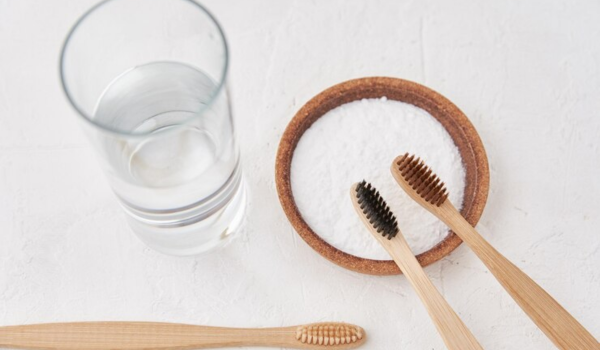Salt Water for Toothache: Natural Relief That Really Works
Salt Water for Toothache: A Natural Remedy for Dental Pain Relief

Toothaches can be excruciating, often disrupting daily activities and causing significant discomfort. While professional dental care is essential for addressing the root causes of tooth pain, certain home remedies can provide temporary relief.
One such remedy is using salt water, a simple yet effective solution that has been utilized for centuries to alleviate dental discomfort.
In this article, we’ll explore how salt water can help soothe toothaches, the science behind its effectiveness, proper usage guidelines, and when to seek professional dental care.
Understanding Toothaches
Before delving into the benefits of salt water, it’s crucial to understand what causes toothaches. Tooth pain can arise from various factors, including:
- Tooth Decay: Cavities or dental caries are among the most common causes of toothaches. When bacteria erode the enamel and reach the sensitive inner layers of the tooth, pain ensues.
- Gum Disease: Infections or inflammation of the gums can lead to discomfort and tenderness around the affected teeth.
- Tooth Sensitivity: Exposed dentin due to worn enamel can cause sharp pain when consuming hot, cold, or sweet foods and beverages.
- Dental Trauma: Accidents or injuries that affect the teeth can result in pain and swelling.
- Abscessed Tooth: A severe infection at the root of the tooth or between the gum and a tooth can cause intense pain.
How Salt Water Alleviates Toothache?
Salt water rinses offer several benefits that can help alleviate toothache symptoms:
- Antibacterial Properties: Salt has natural antibacterial effects. Rinsing with salt water can help reduce the number of harmful bacteria in the mouth, which may be contributing to the infection causing the toothache.
- Reduces Inflammation: Salt water can help reduce inflammation in the gums and surrounding tissues. The warm saline solution draws out excess fluid from swollen tissues, providing relief from pain and discomfort.
- Cleanses the Affected Area: Rinsing with salt water can help dislodge food particles and debris lodged between teeth, which might be causing irritation and pain.
- Promotes Healing: For individuals recovering from dental procedures or those with minor gum injuries, salt water rinses can promote healing by keeping the area clean and reducing the risk of infection.
How to Use Salt Water for Toothache Relief?
To effectively use salt water as a remedy for toothache:
- Prepare the Solution: Mix about half a teaspoon of salt into a glass of warm water (approximately 8 ounces). Stir until the salt is completely dissolved.
- Rinse the Mouth: Take a sip of the solution and swish it around your mouth for about 30 seconds, focusing on the area where you feel pain.
- Spit It Out: Do not swallow the salt water. Spit it out into the sink.
- Repeat as Necessary: You can use this rinse up to three times a day, especially after meals, to help alleviate discomfort.

Precautions and Considerations
While salt water rinses are generally safe, it’s essential to consider the following:
- Avoid Overuse: Excessive rinsing can irritate the gums and oral tissues. Limit use to 2-3 times daily.
- Not a Permanent Solution: Salt water rinses provide temporary relief and do not address the underlying cause of the toothache. It’s crucial to consult a dentist for persistent or severe pain.
- Avoid Swallowing: Swallowing salt water can lead to dehydration and other health issues. Always spit it out after rinsing.
- Consult a Dentist: If the toothache persists for more than a couple of days, is accompanied by fever, or if you notice swelling, it’s essential to seek professional dental care promptly.
When to Seek Professional Dental Care?
While salt water rinses can offer temporary relief, certain symptoms indicate the need for professional dental attention:
- Persistent Pain: If the toothache continues for more than two days without improvement.
- Severe Discomfort: Intense pain that interferes with daily activities.
- Swelling: Noticeable swelling in the gums or face.
- Fever: A fever accompanying the toothache may indicate an infection.
- Sensitivity: Prolonged sensitivity to hot or cold temperatures.
In such cases, it’s crucial to consult a dentist to determine the underlying cause and receive appropriate treatment.
Other Home Remedies for Toothache Relief
In addition to salt water rinses, several other home remedies may help alleviate toothache symptoms:
- Cold Compress: Applying a cold compress to the outside of the cheek near the painful area can help reduce swelling and numb the pain.
- Clove Oil: Clove oil contains eugenol, a natural anesthetic that can numb the affected area. Apply a small amount to a cotton ball and place it on the painful tooth.
- Peppermint Tea: Peppermint has mild numbing properties. Sipping on cool peppermint tea or applying a cooled tea bag to the affected area may provide relief.
- Hydrogen Peroxide Rinse: A diluted hydrogen peroxide rinse can help kill bacteria and reduce inflammation. Mix equal parts of 3% hydrogen peroxide and water, swish around the mouth, and spit it out.
- Garlic: Garlic has natural antibacterial properties. Crushing a garlic clove and applying it to the affected area may help alleviate pain.
How Salt Water Compares to Other Remedies
| Remedy | Benefit | Ideal Use Case |
| Salt Water Rinse | Anti-inflammatory, antiseptic, promotes healing | General pain, post-dental procedures |
| Clove Oil | Numbs pain, antimicrobial | Tooth nerve pain |
| Cold Compress | Reduces swelling and numbs pain | Trauma-related or severe toothache |
| Hydrogen Peroxide | Kills bacteria, reduces plaque | Severe gum inflammation (use cautiously) |
| Peppermint Tea | Mild numbing effect, soothing | Minor tooth pain or irritation |
Salt water stands out as one of the most accessible and safest remedies for broad-spectrum relief of oral discomfort.
Frequently Asked Questions (FAQ)
Can I use salt water if I have cavities?
- Yes, it may help reduce inflammation and bacteria in the area temporarily. However, it won’t fix the cavity. You’ll need a filling or professional treatment to restore the tooth.
Is salt water safe for children with toothaches?
- Yes, for children over the age of 6 who can rinse and spit properly. Always supervise young children to prevent swallowing the solution.
How soon will I feel relief after rinsing?
- Most people experience mild relief within minutes, especially if the pain is caused by inflammation or debris stuck between teeth.
Can I use Himalayan pink salt or sea salt?
- Yes, as long as it’s non-iodized and free from additives. These salts contain trace minerals but offer similar effects to regular table salt.
Can I refrigerate the salt water rinse?
- It’s best to prepare fresh warm salt water before each use. Cold salt water is less effective and can irritate sensitive teeth.
Best Practices for Toothache Relief Using Salt Water
- Consistency Is Key: Use the rinse 2–3 times daily for mild to moderate pain.
- Use Warm Water: Warm water enhances the soothing effect and helps dissolve salt better.
- Avoid Drinking or Eating Immediately: Wait at least 10–15 minutes after rinsing to let the effects set in.
- Pair with Good Oral Hygiene: Brush and floss regularly to prevent further decay or gum problems.
- Avoid Smoking and Sugary Foods: These irritants can worsen toothache and gum inflammation.

When Salt Water Isn’t Enough: Advanced Dental Issues?
If you’re experiencing intense or prolonged toothache, it may be a sign of a more serious condition, including:
- Tooth Abscess: A deep infection that can cause severe pain, swelling, and pus. Requires antibiotics and drainage.
- Cracked Tooth Syndrome: Pain when chewing or with temperature changes, due to microscopic cracks in the tooth.
- Pulpitis: Inflammation of the dental pulp inside the tooth, often requiring root canal therapy.
- Impacted Wisdom Tooth: Common in late teens and adults, causing radiating pain and jaw stiffness.
In such cases, salt water provides only temporary relief and should not delay professional care.
Long-Term Strategies to Prevent Toothaches
Salt water is a valuable tool, but preventing the recurrence of toothaches is the real goal. Here’s how:
1. Maintain a Regular Oral Hygiene Routine
- Brush twice daily with fluoride toothpaste.
- Floss daily to remove plaque and food particles.
- Use an antibacterial mouthwash as advised by your dentist.
2. Regular Dental Checkups
- Visit your dentist every six months for cleanings and exams to catch issues early before they become painful.
3. Stay Hydrated
- Dry mouth promotes bacterial growth. Drink plenty of water, especially if you consume acidic or sugary foods.
4. Watch Your Diet
- Reduce sugary snacks and drinks. Incorporate tooth-friendly foods like leafy greens, yogurt, and crunchy fruits.
5. Wear a Mouthguard
- If you grind your teeth at night (bruxism), wearing a mouthguard can prevent pressure-related toothaches.
A Holistic Approach: Supporting Your Body Naturally
Pairing salt water rinses with a holistic lifestyle enhances their effects:
- Turmeric: Natural anti-inflammatory. Mix with water and apply as a paste on the gums.
- Aloe Vera Juice: Can reduce gum irritation and support healing.
- Essential Oils: Tea tree and eucalyptus oil can be diluted and used for bacterial control.
These natural methods, along with salt water, support a well-rounded approach to oral care.
Conclusion
Salt water for toothache is a timeless, affordable, and highly accessible home remedy that offers real relief when you’re dealing with dental discomfort.
Its antibacterial, anti-inflammatory, and soothing properties make it a first-line treatment for everything from minor gum irritation to post-procedure healing.
But while salt water can help manage symptoms, it is not a cure. Persistent or intense tooth pain often signals a deeper issue that needs prompt professional care.
Think of salt water as a supportive ally in your oral health toolkit not a standalone solution.
Embrace this simple remedy, stay consistent with your oral hygiene, and always seek expert guidance when needed. Your mouth, and your future smile, will thank you.
.